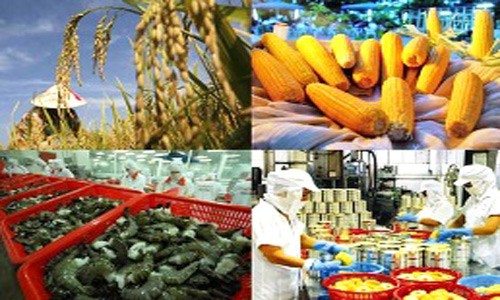(VOVworld) – When Vietnam’s free trade agreements and the Trans-Pacific Partnership come into force, foreign enterprises will pour into the Vietnamese market, stimulating trade, increasing competition, and bringing benefits to consumers. Small and medium-sized enterprises will face a lot of new challenges.
 |
| Many economic areas expect increased exports from the TPP agreement. (Photo: uef.edu.vn) |
Hoang Anh Company is one of a handful of Vietnamese companies that research and produce raw materials, food flavorings, and additives for other food processors. It supplies raw materials to companies in many sectors, such as sterilized milk, beverages, coffee, confectionary, canned food, seasonings, and pharmaceutical products.
Nguyễn Ngọc Hoàng Nam, the company’s Marketing Director, says: “Vietnam imports almost all of its support materials and products. Locally made products have not received sufficient investment from producers or the government.”
When the TPP agreement takes effect, almost all import tariffs will be slashed to 0% for members, including in the US, the biggest market in the TPP. This will be a great boost for Vietnam’s exports.
Garments and textiles, footwear, aquaculture, farm produce, and timber exports will greatly benefit from the deal, as will most consumer goods.
But many TPP members are markets that demand high quality, high production volumes, and high technology. These are hurdles for Vietnamese small and medium-sized enterprises, according to Nguyễn Dương Hiệu, director general of the Lidovit Industry and Trade Company.
“The important thing is to further increase investment, upgrade equipment, and provide more training of human resources to improve the competitiveness of Vietnamese products. Only this will bring Vietnamese products to the international market,” said Hiệu.
Huỳnh Văn Minh, president of the Ho Chi Minh City Business Association, says Vietnamese enterprises still find it hard to fill large orders in a timely fashion. To compete against foreigners, domestic enterprises will need a lot of capital to ensure security and sustainability. The state needs to adopt comprehensive policies on capital access, taxation, interest rates, land, and manpower to create stronger opportunities for SMEs to invest and compete.
Vietnam now has 400,000 SMEs which are weak in capital, technology, management capacity, and market experience. When trade agreements like the TPP become effective, SMEs will have to survive fierce competition from large foreign rivals.
In addition to support from the government, the SMEs will have to adapt to TPP regulations to even compete at home.